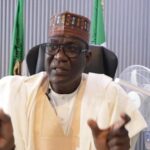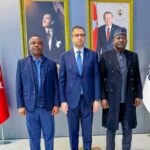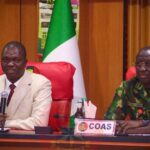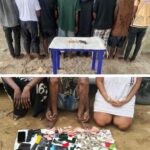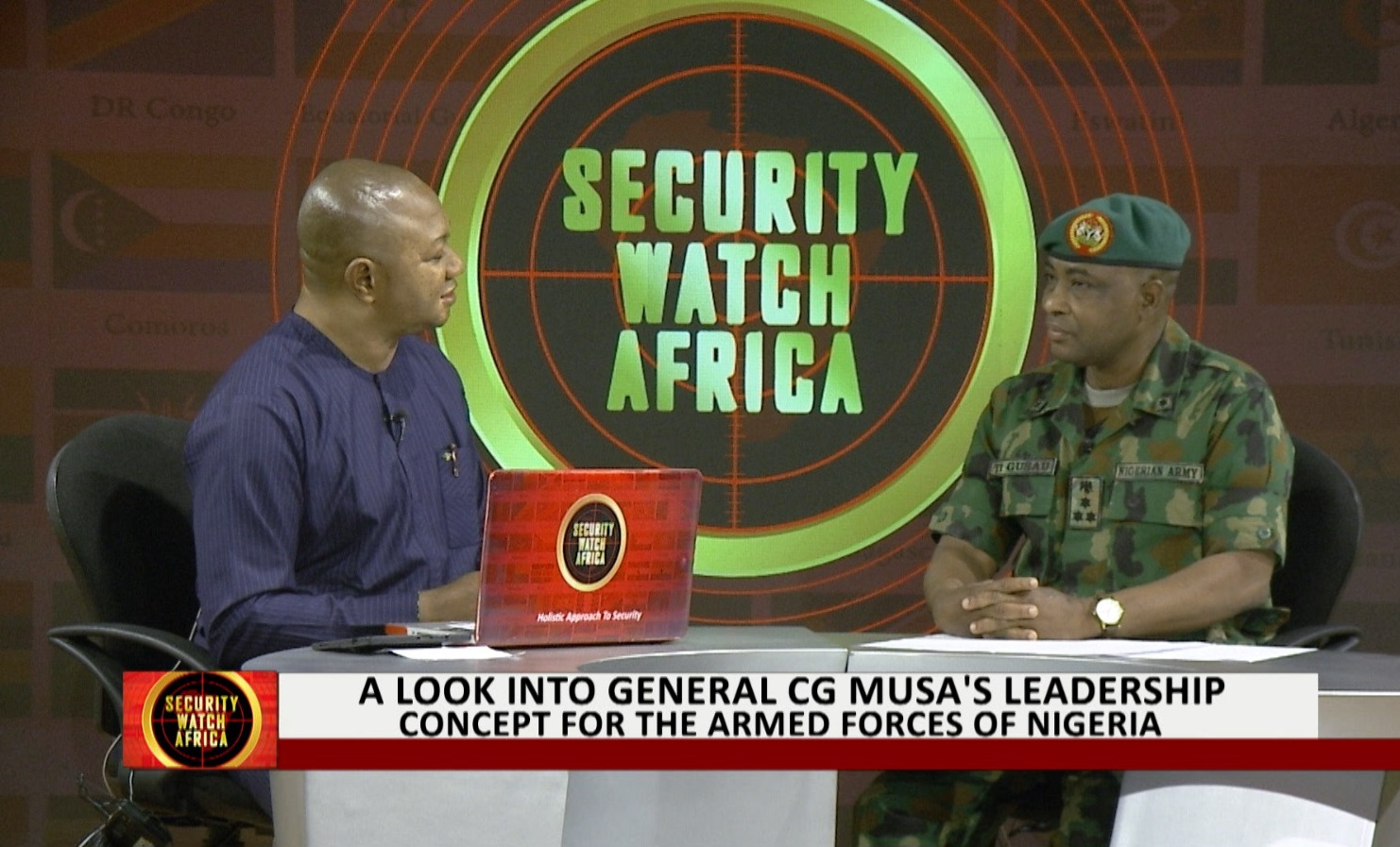By Augustine Ehikioya
The First Lady of the Federal Republic of Nigeria, Senator Oluremi Tinubu, has attributed breakdown of family values as contributory factor fuelling insecurity in the country.
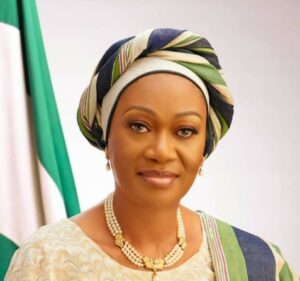
According to her, the family which is the bedrock of any society, is no longer what it used to be in Nigeria.
Children, she noted, now easily inculcate negative behaviors from their peers as parents are mostly increasingly unavailable due to pressures to make ends meet.
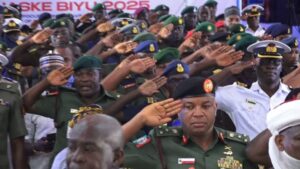
The First Lady spoke while declaring open the multi-agency training exercise on Internal Security and Low Conflict (IS/LIC) operations nicknamed “Exercise HASKE BIYU” of the Armed Forces Command and Staff College, Jaji, Kaduna State.
It was themed “Family and National Security in Nigeria”,
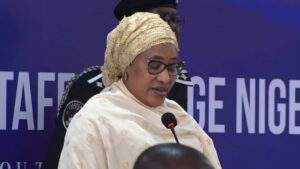
Stressing that the theme was apt, Senator Tinubu, who was represented by the wife of the Vice President, Haj. Nana Kashim Shettima, said “Family is the bedrock of society. It is where we learn our core values of love, duty, respect, and sacrifice. Our nation is made up of millions of individual families from various tribes, ethnicities, religions and traditions, each with dreams, aspirations, and the right to live in safety and freedom.
“National security creates a stable environment where families can thrive, economies can grow, and the future can be built
“However, these days, the family unit is no longer what it used to be. Many parents, while striving to make ends meet, abandon their parental responsibility, thereby leaving their children to raise themselves.
“This parental absence creates a void which often gets filled by negative influences including bad companies, cultism, exposure to drugs, prostitution, get rich quick syndrome and extremist ideologies.
“This trend is detrimental and leads to catastrophic outcomes for the family which sometimes threatens national security,” she stated.
To change the trend, Senator Tinubu urged religious, traditional, and community leaders to continue to teach Nigerian children the right principles of faith and reinforce positive family values.
According to her, the Renewed Hope Agenda of His Excellency, President Bola Ahmed Tinubu, is committed to supporting the welfare of families through various economic reforms and social interventions.
In this direction, she pointed out that the conditional cash transfer programme has been scaled up to provide N25,000 in three tranches to 15 million vulnerable households across the country.
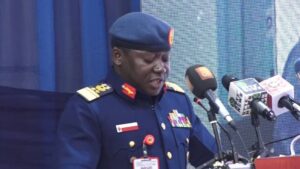
On his part, the Commandant Armed Forces Command And Staff College Nigeria, Air Vice Marshal Hassan Idris Alhaji, noted that the Exercise HASKE BIYU was originally designed as a platform to synchronize tactics, techniques and procedures as well as build synergy between the members of our Armed Forces and the Nigeria Police in order to optimize internal security and emergency responses.
According to him, it then evolved to include all security establishments and first responders.
“This year, we have expanded the scope and scale of the exercise to make it a whole of nation problem solving vehicle to address pressing contingencies so as to reinforce institutional synergy and national resilience, as a pathway to peace and prosperity.
“This iteration will therefore cover both the kinetic and non-kinetic lines of operation with a slight emphasis on the non-kinetic. This is because operational and tactical kinetic successes would only work achieve sustainable political end states if reinforced by societal acceptance,” he said.
The Commandant said that the theme recognizes the centrality of the family in individual and collective lives, traditional values, moral compass, and belief in the Divine.
He added, “It is also a bid to start back at the beginning to allow us re-assess the growing malaise in our society and make our way up so that we can have the country that we all want to have. A place of safety, security, and opportunity for all.”
He also warned that the security in the country will become more compounded by external factors, except Nigeria puts her house in order.
“Ending the current multi-dimensional crises is therefore the first and most important task before us all.
“Additionally, solving our security and economic misalignments are key to achieving in the shortest possible timeframe, the trillion-dollar economy that our Commander-in-Chief has rightly committed to,” he stated.
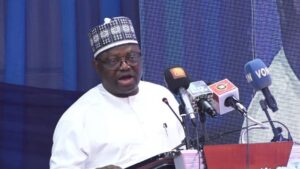
The Director General, National Orientation Agency (NOA), Mallam Lanre Issa-Onilu, noted that a new compulsory subject, Citizenship Study, for all pupils from Primary 1 to SS3, to be introduced starting next academic session, will teach young Nigerians patriotism, values, and civic responsibility.
He said that plans to nationalize cartoon content will curb foreign cultural influence on children.
“In the next three years, cartoons will focus on Nigerian culture, heroes, and traditions, with the Federal Government investing heavily in the project.”
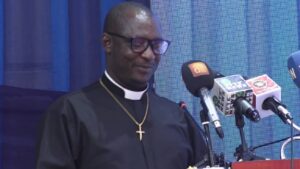
The Bishop of the Catholic Diocese of Sokoto, Nigeria, Bishop Matthew Hassan Kukah represented by Rev Joseph John Hayab, Chairman, Christian Association of Nigeria, CAN, in the 19 Northern states and the Federal Capital Territory, FCT, Abuja pushed for the inclusion of family values in tackling insecurity.
He described the family as the foundation of morals and discipline, warning that children without proper guidance are easily recruited by criminals.
He called on participants to lead by example, emphasising that strengthening families is key to lasting peace and security in Nigeria.
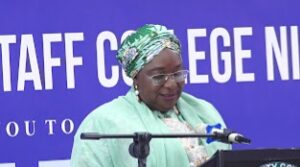
Executive Governor of Kaduna State, Governor Uba Sani, represented by his Deputy, Dr Hadiza Sabuwa Balarabe, reiterated the state commitment to strengthening security as a foundation for peace and development.
The Governor emphasised the State’s unique position as a Garrison State and home to several military institutions.
According to him, security is not only a Federal mandate but also a State responsibility.
He said that his administration has made security a key pillar of governance, stressing that sustainable development can not be achieved without collaboration between security agencies, communities, and government stakeholders.
The Governor also highlighted the critical role families play in shaping a peaceful society, describing them as the bedrock of social cohesion, cultural identity, and moral integrity.
He warned that dysfunctional family systems can create vulnerabilities, exposing young people to crime and violent extremism.
Strong family structures, he said, will instil discipline, responsibility, and respect—values essential to national stability.
He urged families to lead in promoting dialogue, empathy, and understanding to build a safer and more just society.
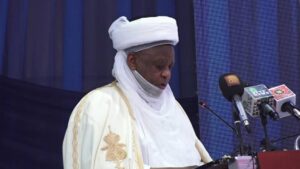
Sultan of Sokoto, Sa’adu Abubakar Muhammadu Sa’ad Abubakar, in his remark, emphasised the crucial role of the family in shaping children’s security culture.
He stressed that education begins at home, with parents serving as the first role models.
On the importance of cultural values, he noted that mothers are the first teachers of every child, whose daily actions greatly influence their v1alues, attitudes, and behaviour.
The Sultan urged Nigerians to look inward, drawing from the nation’s rich history and traditions, particularly lessons from the old Sokoto Caliphate, where policies were developed to guide future generations, rather than relying solely on borrowed ideas that lack roots in local societies.
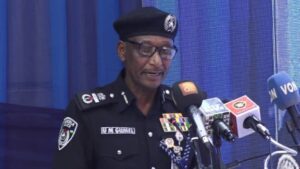
The Inspector General of Police, Kayode Egbetokun represented by Assistant Inspector-General of Police Mohammed Usaini Gumel, from the Nigeria Police Force Department of Training and Development reaffirmed its commitment to strengthening inter-agency cooperation and fostering family-centered security strategies.
Highlighting the need for a whole-of-society approach to tackling insecurity, the NPF Boss called for collaboration among families, schools, traditional rulers, faith-based organizations, and security agencies.




